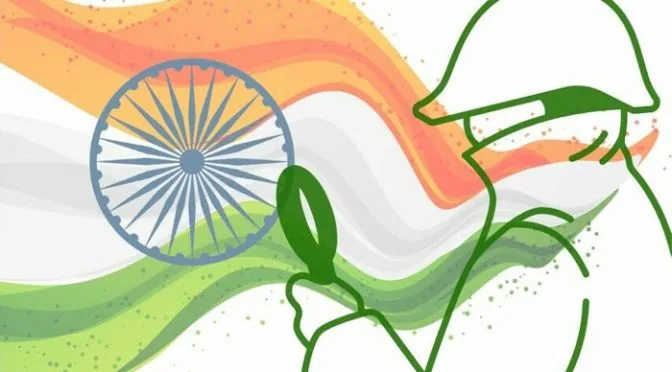
Iiiustration Credit : Daily Ausaf
“Every neighbouring state is an enemy and the neighbouring state’s neighbour is a friend.”
Kautilya, The Arthashastra
Throughout history, rogue governments have engaged in false flag operations. India has been no exception unfortunately. It has consistently employed a deceptive campaign to shape a narrative that portrays Pakistan as a source of violence in the region. It is more likely that ahead of the coming general elections, any false flag operation will be used by PM Modi to seek third term as PM. Instances such as plane hijackings, attacks on their own parliament, Pulwama, or Uri, have been accompanied by New Delhi’s use of fictional and baseless claims to tarnish Pakistan’s reputation.
The false flag operation is a theatrical drama staged by India to achieve multiple objectives. This strategy is perceived to attain political advantages and divert global focus from internal issues such as insurgencies and religious intolerance within India. There is no doubt that Indian policies, inspired by Kutilya’s Doctrine, have made the region face a formidable set of challenges from within.
Ikram Sehgal in his book very aptly described in his preface that:
“India has a proven penchant for false-flag operations and is always busy hatching conspiracies to damage Pakistan not only from the east but also from the west through its Afghan proxies. Never accepting the existence of Pakistan as an independent sovereign state, its foreign policy remains anti-Pakistan centric.”
It is important to highlight that India pioneered the introduction of cross-border terrorism in South Asia in 1971. The Research and Analysis Wing (RAW) has been employed as a tool for state sponsored terrorism, engaging in activities such as false flag operations, psychological warfare, espionage, and efforts to destabilize and overthrow neighboring governments, pressuring them to submit to India’s dominance.
India’s hegemonic aspirations have strained its relations with all the regional countries including Nepal, Bhutan, Bangladesh, and Myanmar.
Before writing and promoting an anti-Pakistan book in India, American analyst and author Christine Fair said in 2009,
“Having visited the Indian mission in Zahedan, Iran, I can assure you they are not issuing visas as the main activity. Moreover, India has run operations from its mission in Mazar (through which it supported the Northern Alliance) and is likely doing so from the other consulates it has reopened in Jalalabad and Qandahar along the border. Indian officials have told me privately that they are pumping money into Balochistan.”
Another US analyst, Laura Rozen, explained the India-Taliban nexus,
“While the US media has frequently reported on Pakistani ties to jihadi elements launching attacks in Afghanistan, it has less often mentioned that India supports insurgent forces attacking Pakistan. The Indians are up to their necks in supporting the Taliban against the Pakistani government in Afghanistan and Pakistan. The same anti-Pakistani forces in Afghanistan also shooting at American soldiers are getting support from India. India should close its diplomatic establishments in Afghanistan and get the Christ out of there.”
India always tried to bluff the situation to play a victim card. India always engages in immoral activities like fraud, deceit, propaganda and state sponsored terrorism as a policy tool in numerous incidents to fulfill its national interests. From example, on 20 March 2000, 35 Sikhs were killed in a mass shooting incident in the Anantnag district of Jammu and Kashmir, Indian Parliament Attack in 2001, car bombing at the occupied Kashmir’s Legislative Assembly in 2001, and the Malegaon Mosque Blast in 2006, Uri attack 2016, and Pulwama 2019 all were found to be false by India’s own officials. Most interesting were the revelations by Ex-IIOJK governor of IIOJK, Satya Pal Malik, appointed by PM Modi during the Pulwama attack, publicly stated that Modi and his team privately acknowledged their incompetence in allowing the incident to happen just to gain the electoral benefits.
The BJP government secured victories in the 2014 and 2019 general elections by employing anti-Muslim and anti-Pakistan rhetoric. Since assuming power, Prime Minister Modi, the fervent leader of the BJP, has actively implemented the ideology of Hindutva (Hindu Nationalism), leading to the persecution of Muslims, Christians, Dalits etc and the stoking of war-hysteria among Hindus against Pakistan. There is a strong likelihood that PM Modi might once again resort to past tactics of accusing Pakistan of supporting terrorism within India for electoral gains. This inclination is apparent from the recent incident of inaugurating the Ram Temple, indicating a deliberate effort to shift focus and achieve political objectives.
Even though Pakistan has always tried every way to make peace in the region, whereas Indian leadership always appears to be interested in making short-term gains rather than longing for durable peace and stability. India needs to understand that peace in the region will not be attained by large armies or by increasing number of nuclear weapons.
Hence, the deep-rooted distrust between India and Pakistan, compounded by Indian leadership tilt towards extremism and Hindutva ideology, alongside major powers reluctance to adopt a non-discriminatory approach towards India — especially concerning India’s actions in Indian Illegally Occupied Jammu and Kashmir (IIOJK) — has significantly raised the risk of escalation. Therefore, it is important for the BJP government to reverse the negative trajectory it is following that could in turn may lead to a military crisis in South Asia.
